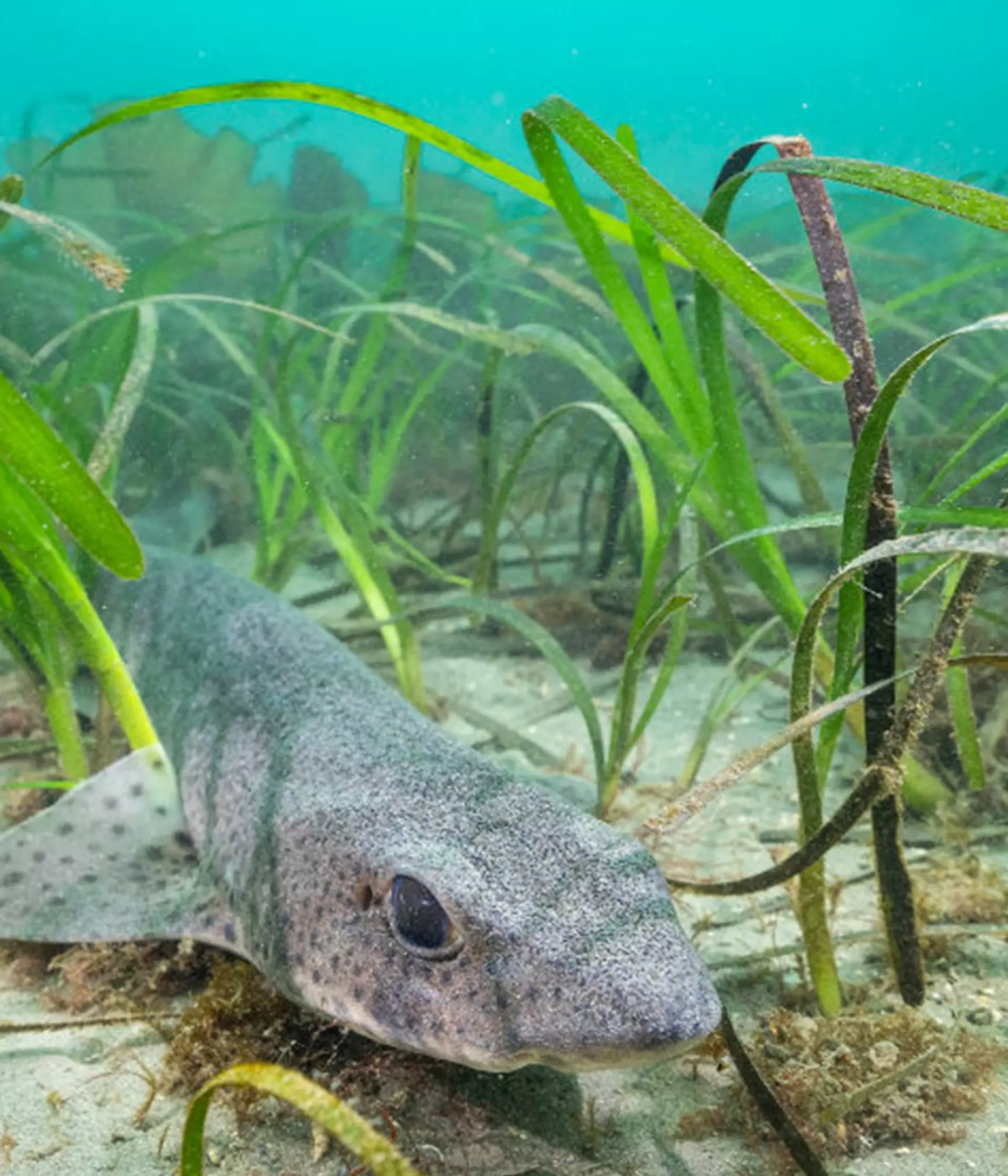
23 November 2022 5:30pm
Coastal and estuarine habitats in Europe have been decimated over the last 200 years.
In England, we have lost 85% of our salt marsh, extirpated seagrass from 50% of our coastal waterbodies and removed 95% of our oyster habitat. Yet these habitats are some of the most important for carbon-storing and other provisioning services such as fisheries, improving water quality, and coastal defences, which Nature-based Solutions so depend on.
An increasing evidence base illustrates the critical value of these coastal habitats individually. In this UN Decade on Ecosystem Restoration, the number and scale of restoration efforts is increasing and now is the time to reflect on the potential of the seascape to deliver for nature and people at a large scale. The role of habitats as part of a dynamic and resilient system is beginning to be understood. With the recently proposed EU Nature Restoration Law presenting a legally binding requirement to restore 20% of the EU marine territory, and with the Decade on Ecological Restoration and the Ocean Decade both underway, now is the time to reflect on what seascape connectivity could mean and what can be achieved in the longer term. Symposium sessions will focus on ecological connectivity, climate mitigation, resilience, restoration potential and benefits of restoration of threatened coastal habitats.
This two-day symposium provided a comprehensive review of the current state of science surrounding habitat connectivity in temperate coastal systems and provide a firm basis for discussion and networking relating to the policy and practical importance of this understanding. It brought together a varied audience of scientists, policy makers, restoration practitioners and interested parties looking to provide evidence and delivery of seascape restoration. This symposium contributed to the aims of the ReMeMaRe Connectivity in Estuarine, Coastal and Transitional Ecosystem Restoration (ConnECTER) Special Interest Group (SIG).
Image: Seagrass bed beneath the Helford River SAC in Cornwall, providing crucial habitat to a small-spotted catshark © Lewis Michael Jefferies
Resources:
-
To view the printed version of the full programme with Abstracts and Biographies, click here.
-
To view the programme overview click here.
Let us know what you thought:
If you joined the event live, please give us your feedback below, it should take 5 minutes and will help us to improve our future live events, thank you.
Speakers:
- Dr Tundi Agardy, Sound Seas
- Dr Ronald Baker, University of South Alabama, USA and Dauphin Island Sea Lab
- Dan Crockett, Blue Marine Foundation
- Alison Debney, Zoological Society of London
- Professor Michael Depledge CBE, University of Exeter Medical School & Eden Project
- Dr Rachel Dunk, Manchester Metropolitan University
- Dr Philine zu Ermgassen, University of Edinburgh
- Angus Garbutt, UK Centre for Ecology & Hydrology (CEH)
- Gwenaël Hanon, ARK Nature
- Dr Juhyung Lee, Northeastern University, USA
- Dr Dominic McAfee, University of Adelaide, Australia
- Professor Pippa Moore, Newcastle University
- Dr Nathalie Pettorelli, Zoological Society of London
- Dr Joanne Preston, University of Portsmouth and UK Native Oyster Network
- Roger Proudfoot, Environment Agency, UK
- Dr Simon Reeves, The Nature Conservancy, Australia
- Professor Steven Simpson, University of Bristol and University of Exeter
- Courtney Stuart, Oxford Seascape Ecology Lab, University of Oxford
- Dr Ruth Thurstan, University of Exeter
- Dr Richard Unsworth, Project Seagrass
- Dr Stephen Watson, Plymouth Marine Laboratory
- Dr Jakub Wejchert, Directorate-General for Environment, European Commission
- Dr Thomas Worthington, University of Cambridge
Organisers:
- Alison Debney, Conservation Lead, Wetland Ecosystem Restoration, Zoological Society of London
- Celine Gamble, Native Oyster Network - UK & Ireland Coordinator and Wild Oyster Project Manager, Zoological Society of London
- Dr Joanne Preston, Reader in Marine Ecology and Evolution, Biodiversity and Blue Carbon Lead, University of Portsmouth
- Dr Philine zu Ermgassen, Marine Ecosystem Restoration Expert and Honorary Fellow, University of Edinburgh
Further Information:
- Location: This was a two-day symposium, held in person at the Huxley Lecture Theatre, ZSL Meeting Rooms, the Outer Circle, Regent's Park, London, NW1 4RY, UK (number 2 on the map).
- For enquiries about this symposium, please contact scientific.events@zsl.org.
- For press enquiries, please contact the ZSL Press Office: press.office@zsl.org.
- Sign up here to receive email updates about upcoming Science and Conservation Events including updates on this symposium, or browse our What's on page here.
- Listen to our ZSL Wild Science podcast here or subscribe on your favourite podcast app.
- Read the latest blog posts from our scientists and conservationists here.
- Follow us on Twitter @ZSLScience to hear about new publications from our researchers, upcoming events and podcast episode releases.
- Follow us on Facebook @ZSLScienceAndConservation to receive notifications about new events.
- To catch up on all our previous online events, you can find them on our YouTube channel, or here.
- For more information about how to join the ZSL Fellowship programme and engage with a network of thousands who are shaping the future of conservation, please click here.

The symposium is co-funded by the European Union, and opinions expressed however will be those of the author(s) only and do not necessarily reflect those of the European Union. Neither the European Union nor the granting authority CINEA can be held responsible for them.
